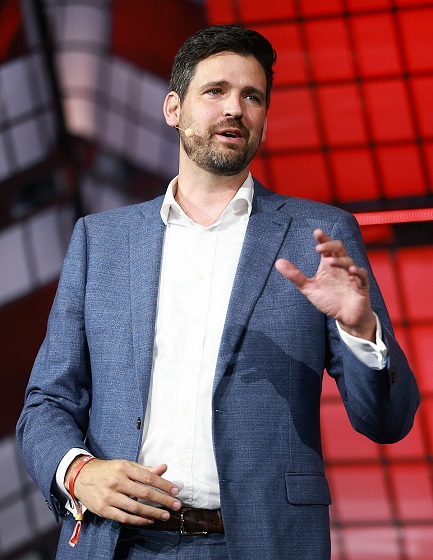Opinion
2019 will see 2 elections, possibly a by-election. Does it matter who’s name is on the ballot in Red Deer.

2019 will give us at least 2 elections. A Provincial Election and a Federal Election. If a city councillor or a school board trustee runs and gets elected, provincially or federally, we could be faced with an expensive by-election.
In the upcoming Provincial election it will be a race between the governing NDPs and the Conservatives. Does it matter who’s name is on the ballot in Red Deer? No, because they are just going to be back-bench seat warmers. They will not be in cabinet. The elected person will be told when and how to vote. They may be given lucrative appointments to committees where they will be told how to vote.
The upcoming Federal election will be between the governing Liberals and the Conservatives. Does it matter who’s name is on the ballot in Red Deer? No, because again they just going to be back-bench seat warmers. Well compensated for their time but still at the beck and call of their political masters.
The nominees will campaign and make promises to the voters but they will answer to their political leaders. Their main objective, if elected, will be to promote the party.
Our hospital is chronically under-staffed, under-funded, and under equipped. Ambulances often times rerouted to Lacombe. We have poorest air quality in Canada for years. Our crime rate has been in the top ten, nationally, in many polls. We haven’t had a swimming pool or indoor skating rink built north of the river in 40 years.
The last school that was to be built in Johnstone Park but politicians decided it should be built in Inglewood instead. There has never been a high school north of the river where approximately 1/3 the students live, and the politicians decided that there should be 5 high schools east of 30 Ave. between 29 &69 Street.
Does it really matter who’s name is on the ballot in Red Deer?
Apparently not.
International
Kazakhstan joins Abraham Accords, Trump says more nations lining up for peace

Kazakhstan is officially joining the Abraham Accords, becoming the first nation to do so during President Trump’s second term — and signaling a renewed push for peace and stability across the Middle East and Central Asia. Trump made the announcement Thursday on Truth Social, writing, “I just held a great call between Prime Minister Benjamin Netanyahu, of Israel, and President Kassym-Jomart Tokayev, of Kazakhstan. Kazakhstan is the first Country of my Second Term to join the Abraham Accords, the first of many.” He continued, “This is a major step forward in building bridges across the World. Today, more Nations are lining up to embrace Peace and Prosperity through my Abraham Accords. We will soon announce a Signing Ceremony to make it official, and there are many more Countries trying to join this club of STRENGTH. So much more to come in uniting Countries for Stability and Growth — Real progress, real results. BLESSED ARE THE PEACEMAKERS!”
Secretary of State Marco Rubio echoed the announcement, calling Trump “the world’s ultimate negotiator.” Rubio said in a post that “the American people have the ultimate advocate and champion for peace in @realDonaldTrump,” adding that Kazakhstan’s entry “builds on President Trump’s unmatched record of delivering results.” The move represents a significant diplomatic step for Kazakhstan, a Muslim-majority nation that has long sought to balance relations between Russia, China, and the West while maintaining economic ties with Israel and the United States.
According to senior adviser Steve Witkoff, the agreement could be just the start of another wave of normalization. Witkoff told Breitbart News there is “big energy” behind four to six additional countries joining “in the next couple of months,” pointing to Lebanon, Syria, Libya, Armenia, and Azerbaijan as likely candidates. Former Arkansas Governor and U.S. Ambassador to Israel Mike Huckabee similarly suggested during a Breitbart Founders Club Roundtable that Saudi Arabia remains the most consequential prospective addition. Huckabee highlighted the United Arab Emirates’ economic transformation since joining the Accords as an example of the tangible benefits for participating nations.
Rubio has also met with Syrian interim President Ahmed al-Sharaa, who expressed interest in lifting sanctions to attract foreign investment. While al-Sharaa acknowledged that joining the Abraham Accords may not yet be realistic for Syria given tensions with Israel, he signaled openness to long-term normalization under the right conditions.
Trump, who returned to office in January, vowed throughout his campaign and transition to expand the Abraham Accords beyond their original signatories — Israel, the UAE, Bahrain, Morocco, and Sudan — and hinted earlier this year at progress with Saudi Arabia. “They’ll join in their own time,” he told business leaders at the 2025 Saudi-U.S. Investment Forum. Saudi Crown Prince Mohammed bin Salman is scheduled to visit Washington on November 18, while al-Sharaa is expected to arrive next week for meetings at the White House.
The original Abraham Accords, signed in September 2020, reshaped diplomatic relations in the Middle East under Trump’s first term. With Kazakhstan now on board and more nations signaling interest, Trump’s second-term foreign policy is again centering on a message of peace through strength — and a vision of an American-led era of regional cooperation grounded in security, prosperity, and faith.
Business
Carney’s Deficit Numbers Deserve Scrutiny After Trudeau’s Forecasting Failures

From the Frontier Centre for Public Policy
By Conrad Eder
Frontier Centre for Public Policy study reveals a decade of inflated Liberal forecasts—a track record that casts a long shadow over Carney’s first budget
The Frontier Centre for Public Policy has released a major new study revealing that the Trudeau government’s federal budget forecasts from 2016 to 2025 were consistently inaccurate and biased — a record that casts serious doubt on the projections in Prime Minister Mark Carney’s first budget.
Carney’s 2025–26 federal budget forecasts a $78.3-billion deficit — twice the size projected last year and four times what was forecast in Budget 2022. But if recent history is any guide, Canadians have good reason to question whether even this ballooning deficit reflects fiscal reality.
The 4,000-word study, Measuring Federal Budgetary Balance Forecasting Accuracy and Bias, by Frontier Centre policy analyst Conrad Eder, finds that forecast accuracy collapsed after the Trudeau government took office:
- Current-year forecasts were off by an average of $22.9 billion, or one per cent of GDP.
- Four-year forecasts missed the mark by an average of $94.4 billion, or four per cent of GDP.
- Long-term projections consistently overstated Canada’s fiscal health, showing a clear optimism bias.
Eder’s analysis shows that every three- and four-year forecast under Trudeau predicted a stronger financial position than what actually occurred, masking the true scale of deficits and debt accumulation. The study concludes that this reflects a systemic optimism bias, likely rooted in political incentives: short-term optics with no regard to long-term consequences.
“With Prime Minister Carney now setting Canada’s fiscal direction, it’s critical to assess his projections in light of this track record,” said Eder. “The pattern of bias and inaccuracy under previous Liberal governments gives reason to doubt the credibility of claims that deficits will shrink over time. Canadians deserve fiscal forecasts that are credible and transparent — not political messaging disguised as economic planning.”
The study warns that persistent optimism bias erodes fiscal accountability, weakens public trust and limits citizens’ ability to hold government to account — a threat to both economic sustainability and democratic transparency.
-

 Energy2 days ago
Energy2 days agoEby should put up, shut up, or pay up
-

 Business2 days ago
Business2 days agoPulling back the curtain on the Carney government’s first budget
-

 Daily Caller2 days ago
Daily Caller2 days agoUS Eating Canada’s Lunch While Liberals Stall – Trump Admin Announces Record-Shattering Energy Report
-

 Business2 days ago
Business2 days agoThe Liberal budget is a massive FAILURE: Former Liberal Cabinet Member Dan McTeague
-

 Business1 day ago
Business1 day agoCarney’s budget spares tax status of Canadian churches, pro-life groups after backlash
-

 COVID-191 day ago
COVID-191 day agoFreedom Convoy leader Tamara Lich to appeal her recent conviction
-

 Justice1 day ago
Justice1 day agoCarney government lets Supreme Court decision stand despite outrage over child porn ruling
-

 espionage18 hours ago
espionage18 hours agoU.S. Charges Three More Chinese Scholars in Wuhan Bio-Smuggling Case, Citing Pattern of Foreign Exploitation in American Research Labs







